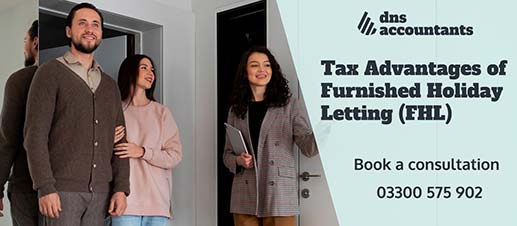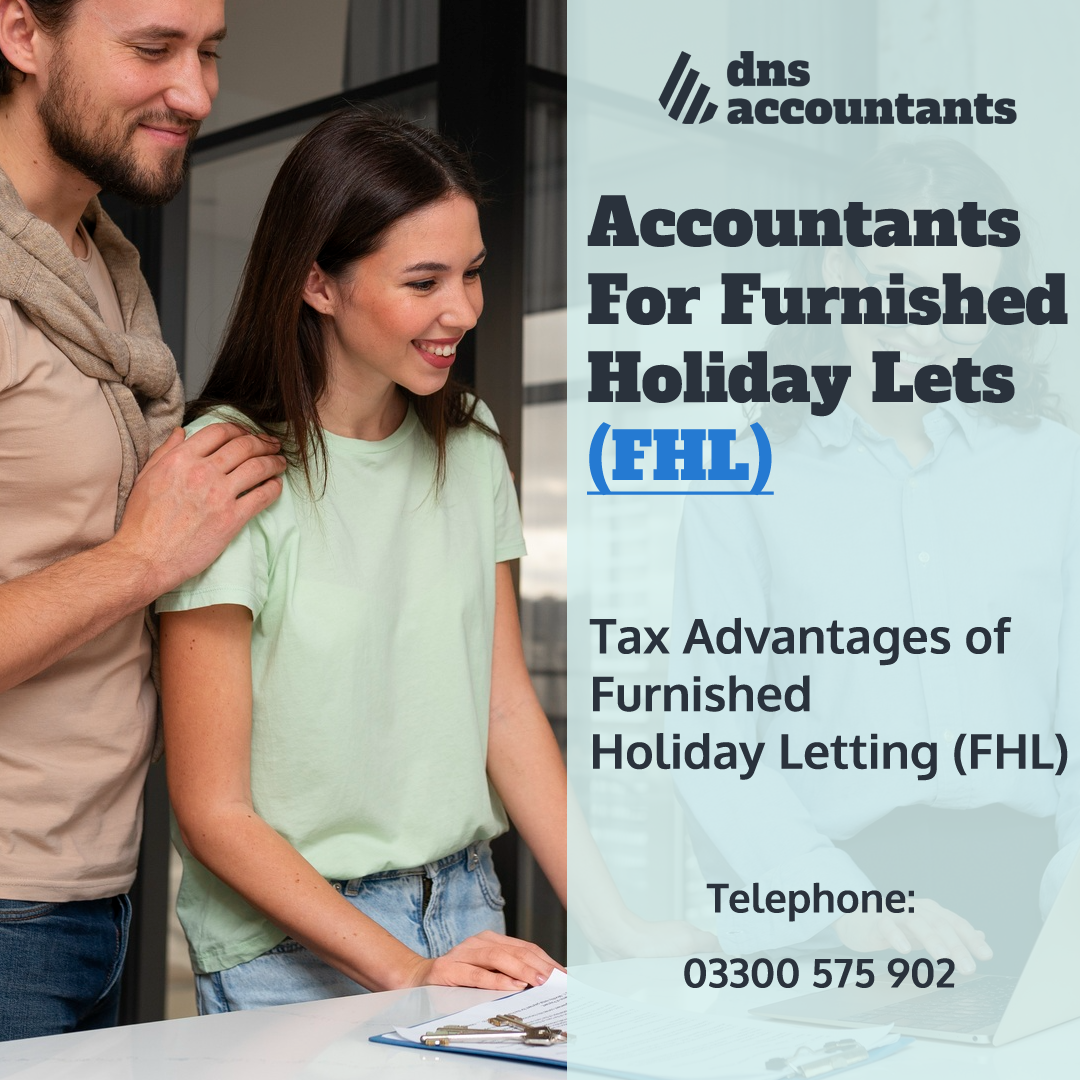
To effectively manage and optimize your holiday home and let finances, consider conducting an initial review, ensuring you meet eligibility criteria, engaging in tax planning, and adhering to tax compliance regulations. These steps will aid in maximizing your rental property’s financial success.
Holiday and furnished holiday lets are a highly sought-after investment option, attracting a wide range of investors.
Whether managed through a company, an individual, or a partnership, they offer excellent yield prospects and tax benefits.
With millions of holidaymakers opting for holiday lets annually, the potential for returns is substantial.
Moreover, as a property landlord, you enjoy the advantage of utilizing the property for personal use or providing it to loved ones without any additional cost.
What is a furnished holiday letting (FHL)?
A Furnished Holiday Let (FHL) is a property that is rented out on a short-term basis, typically to tourists or holidaymakers, for less than 31 consecutive days.
FHLs (Furnished Holiday Let) are popular options for short-term accommodation or holiday homes and offer a fully furnished space for guests.
Properties that qualify income tax, as an FHL (Furnished Holiday Let) offer several advantages over long-term residential rentals.
These include higher rental income potential, tax benefits such as capital allowances, and flexibility for personal use.
Qualification criteria:
To qualify as a Furnished Holiday Letting property, some conditions must be met including letting it on a commercial basis and meeting occupancy and availability requirements.
Location:
The property must be located in either the United Kingdom or the European Economic Area (EEA) in order to be eligible.
Availability condition:
To qualify as a commercial holiday accommodation for tax purposes, the property must be available for letting to the public for at least 210 days (or 30 weeks) during the tax year.
Letting Condition:
In order to qualify as a Furnished Holiday Let (FHL), a property must be rented out for at least 105 days out of a total of 210 days.
This is equivalent to a minimum of 15 weeks. However, if you have multiple FHL properties and one or more of them fall short of the 105-day requirement, you have the option to make an averaging election.
This means you can apply the average occupancy rate of all your FHL properties to meet the letting condition.
According to the regulations, any longer-term lets exceeding 31 days that are provided to friends or family at no cost or a discounted rate do not contribute towards the 105-day limit.
This is because all lets must be commercially let, meaning there must be an intention to generate profit through commercial letting.
To meet the requirements, the Furnished Holiday Let must be adequately furnished to accommodate regular occupation by individuals.
Do I need permission to let out a furnished holiday let?
In order to convert a property into a holiday let, there are various factors to consider.
If the property is new and its original purpose is being changed, you may require permission from your mortgage provider or planning permission from the council.
Additionally, you should take into account any regulations set by the local homeowner’s association, if applicable.
The exact requirements and permissions needed may vary depending on the specific circumstances, hence the need for further investigation.
Tax Advantages of an FHL Property
Claim Capital Gain Tax reliefs:
Business asset rollover or business asset disposal relief is a tax benefit that allows a property to be rolled over into a new business asset without incurring immediate tax liability.
To qualify, the property must be available for public holiday lettings for at least 210 days (or 30 weeks) in a tax year.
Entrepreneur’s relief:
Entrepreneurs relief is a valuable and widely used capital gains tax relief option for business owners.
It enables them to pay a fixed 10% tax rate on their chargeable Capital Gains, in contrast to the higher Capital Gains tax rate of up to 28% that is applicable to non FHL (Furnished Holiday Let) properties.
Relief for gifts of business assets:
Gift holdover relief is a tax benefit that allows businesses to transfer their assets to someone else without incurring immediate liability for Capital Gains Tax.
By utilizing this relief, the tax payment is postponed until the recipient chooses to sell the gifted property. This provision can be advantageous for businesses looking to pass on assets while deferring pay capital gains tax their obligations.
Claim capital allowances on plant and machinery
Furnished Holiday Let (FHL) properties are eligible for Capital Allowances, unlike residential rental properties.
This means that you can claim deductions for the cost of furnishing the property.
By doing so, you can lower your taxable profits and ultimately reduce your tax bill and the amount of tax you need to pay.
Earnings are counted for pension purpose
Under the new arrangement, your accommodation will be classified as a business property, resulting in the imposition pay council tax out of Business Rates instead of Council Tax.
Due to the typical locations of FHL properties, it is likely that you will pay lower amounts in Business Rates compared to council tax.
VAT on holiday lets
If your turnover from your FHL property portfolio exceeds £85,000, you will be required to register for VAT.
If you own a single FHL property, you would need to let it for more than £1,635 per week consistently throughout the year (with 52 consecutive bookings) to surpass the current VAT threshold. This would amount to approximately £85,000 in total yearly rental income.
To determine if VAT needs to be considered, it is important to evaluate the math involved. In most cases, acquiring multiple FHL properties is necessary before VAT becomes a factor to consider.
If your annual income from guests staying at your holiday lets exceeds £85,000, it is mandatory for you to register for VAT and pay the standard rate. This means that you will need to charge an additional 20% above the fee you charge for guests.
If you run a separate business and are VAT registered, your FHL property income may be subject to VAT as well.
When dealing with VAT on holiday lets, it can often be challenging to grasp the intricacies involved. Seeking guidance from experts like dns is advisable, as they can provide precise information to ensure proper compliance.
Tax losses relief from FHL
In the UK, if your company experiences a loss in its UK Furnished Holiday Let (FHL) business, you have the option to deduct those losses from future UK Furnished Holiday Let profits.
Similarly, if your company incurs a loss in its EEA FHL business, you can offset that loss against future profits in your EEA FHL endeavors.
When a business operates both in the UK and the European Economic Area (EEA) with a Furnished Holiday Lettings (FHL) setup, the losses of one cannot be offset against the profits of the other.
Similarly, losses from a FHL company cannot be offset against the profits of a non-FHL property company.
In terms of offsetting losses and profits for Furnished Holiday Lettings (FHL), it’s important to note that FHL losses can only be offset against Furnished Holiday Let profits within the same trade.
This means that if you have one Furnished Holiday Let property registered under your personal name and another FHL property under a limited company, you would not be able to offset any losses from one against the profits from the other. The different vehicle types prevent this offsetting.
Can any costs be deferred to the following tax year?
it is possible to purchase an FHL (Furnished Holiday Letting) that overlaps the change in the tax year and requires maintenance work.
However, please note that it may take approximately eight weeks to complete the necessary maintenance work to bring the property up to acceptable liveable standards.
Capital expenditures and costs, such as property extensions, cannot be claimed against income. However, they can be combined and offset against Capital Gains Tax when the property is sold.
On the other hand, revenue expenditures are allowable expenses, and any resulting loss can be offset against future profits.
According to tax regulations, any pre-commencement trade expenditure can be claimed as a deduction if it was incurred within seven years of trading and the property was in a let state at the same person at time of purchase. These expenses can be included in your calculations for the year in which you begin trading.
In certain cases, individuals may choose not to claim losses from a prior tax year or file a tax return to document these losses and pay tax on. However, they can still carry these losses forward and use them in the tax year when the trading activity began.
The conditions of the Furnished Holiday Let qualifying weeks do not have any impact on the pre-commencement revenue expenditure that was incurred within a seven-year period of grace, prior to the start of the trade. This expenditure can be offset against revenue once the trade officially begins
Number of holiday let properties
Combining multiple Furnished Holiday Let properties in the UK is possible, as long as they are not operating as separate limited companies. By pooling these properties, it is feasible to create a single holiday furnished let business.
This consolidation allows for easier management and potentially more efficient operation of the overall business. The same applies to any properties you own in the EU.
When you sell your property
If you decide to sell your FHL property, you may be eligible to claim specific Capital Gains Tax (CGT) reliefs that are not available for long-term rental properties. These reliefs can provide valuable tax benefits.
- Business Asset Disposal Relief
- Business Asset Rollover Relief
- Gift Hold-over Relief
Split the profits between joint owners
When multiple individuals own a FHL, they have the flexibility to distribute profits among themselves for tax purposes.
In long-term rental properties, profits are typically distributed based on the official ownership split. For example, if you own 50% of the property, you would share 50% of the profits generated.
With a Family and Household Limited Partnership (FHL) property, profit allocation can be determined by the partners. In the case of a husband and wife, they may choose to allocate the profits to the lower-earning spouse.
How we help?
We are pleased to inform you that we offer a comprehensive service that encompasses all aspects of managing Furnished Holiday letting businesses.
From initial review and eligibility criteria to tax planning and calculation, including submissions, we are here to assist you every step of the way. Our service also has professional advice that includes;
- Specialised Furnished Holiday Let property Accountant to help you with assessment and planning
- Provide monthly/yearly accounts report
- Efficient tax planning and advice to ensure you make the most of any tax reliefs
- Award-winning cloud accounting software
- Personal Tax Returns calculation & submission
- Special Offers on Limited Company accounting service
Contact us to arrange free telephone consultation or call us on 03300 575 902. You can also WhatsApp us on 07739 339635.
Frequently Asked Questions (FAQs)
What is a Furnished Holiday Let (FHL) property?
A Furnished Holiday Let (FHL) property is a type of rental accommodation that is furnished and used for short-term holiday lets. It must meet certain criteria set by the tax authorities to qualify as an FHL property.
Why do I need a specialised accountant for my Furnished Holiday Let property?
A specialised accountant for FHL properties has the expertise and knowledge to help you with the specific tax assessment and planning requirements that apply to FHL properties. They can ensure that you are maximizing your tax benefits and complying with the relevant regulations.
What are the specific tax considerations for Furnished Holiday Let properties?
FHL properties are subject to different tax rules compared to standard rental properties. It’s important to understand the specific tax considerations such as capital allowances, capital gains tax, and the potential for claiming business asset rollover relief.
How can a specialised accountant help me with tax planning for my FHL property?
A specialised accountant can assess your individual circumstances and help you to plan your tax affairs in a way that minimizes your tax liability while ensuring compliance with the relevant regulations. They can also provide guidance on structuring your FHL property business for optimal tax efficiency.
What are the benefits of using a specialised accountant for my Furnished Holiday Let property?
Using a specialised accountant can help you to navigate the complex tax rules and regulations that apply to FHL properties. They can provide tailored advice and support to help you make informed decisions and maximize the financial benefits of your FHL property.
How do I find a specialised accountant for my Furnished Holiday Let property?
You can find specialised property tax accountants for your FHL property by searching for accountants with specific expertise in FHL properties or by asking for recommendations from other FHL property owners or industry professionals. It’s important to ensure that the accountant has the relevant experience and knowledge in this area.

